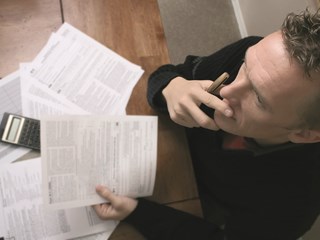
Following the news yesterday that low-income households are facing the fastest rise in consumer debt since the financial crisis, we have taken a look at how consumers can become debt-free in 2020.
When looking at clearing debts, we are looking at unsecured, personal debt such as credit card and loans. This does not cover secure debt or mortgages, but our guide How to pay off your mortgage early does offer some tips on clearing mortgage debt.
These tips are also aimed at those with manageable debt. Consumers who are struggling to repay debts, meet minimum repayments or who are missing bill payments, should seek debt advice from Citizen Advice or a free debt charity.
The first step to becoming debt-free is taking control of household finances, which means having a clear idea of what money is coming in each month and what is being spent. The best way to do this is usually to create a monthly budget, where monthly income can clearly be compared to monthly outgoings. If monthly outgoings are higher than the money coming in, it could be a sign that finances are under stress, in which case the household finances need to be addressed or there is a risk that debts can spiral out of control.
Many providers are now offering budgeting apps that make it even easier for consumers to keep track of their spending. These can be a useful way of monitoring budgets and ensuring that finances remain under control so that the debt can start being tackled.
Once finances are under control, those in debt need to take a look at their debts and see exactly what is owed and to whom. Often, it is best to pay back friends and family first as, while there will usually be no interest charged on this debt, owing money to loved ones can lead to relationship issues, which can have an impact on mental health. Next, it is often best to look at repaying the debt costing the highest interest each month, this is usually the largest debt owed. Aiming to pay off as much as possible each month will help to clear this debt as quickly as possible. Once it is cleared, focus on the next debt costing the most each month and so on until all debt is cleared.
Consumers who owe money in a lot of different places can choose to consolidate their debts by taking out a loan. While it is never advisable to take on more debt when already in debt, consolidating debts with a loan can be an easier way to pay back money owed as it means making just one repayment on one interest rate per month. This helps to make repayments more manageable, however consumers who choose this option need to be disciplined to ensure that they do not spend on credit cards or borrow additional money until the loan is repaid in full.
Consumers with credit card debt can consider transferring their debt onto a 0% transfer credit card. Doing this will mean that they will have a set period of time in which they can repay their credit card debt without being charged interest. Currently, the longest interest-free period on 0% transfer credit cards is 29 months, but borrowers should be aware that these cards can come with a transfer fee, so they need to calculate repaying more than they currently owe on their credit card when working out a repayment plan. Consumers should be aware that in order to take out a 0% transfer credit card they must be accepted by a lender, which may not be easy if they are already in a lot of debt. In addition to this, as with consolidating debts with a loan, consumers who choose this option need to ensure that they do not spend on credit cards until the debt is repaid or they could find themselves in more debt.
Information is correct as of the date of publication (shown at the top of this article). Any products featured may be withdrawn by their provider or changed at any time. Links to third parties on this page are paid for by the third party. You can find out more about the individual products by visiting their site. Moneyfactscompare.co.uk will receive a small payment if you use their services after you click through to their site. All information is subject to change without notice. Please check all terms before making any decisions. This information is intended solely to provide guidance and is not financial advice. Moneyfacts will not be liable for any loss arising from your use or reliance on this information. If you are in any doubt, Moneyfacts recommends you obtain independent financial advice.